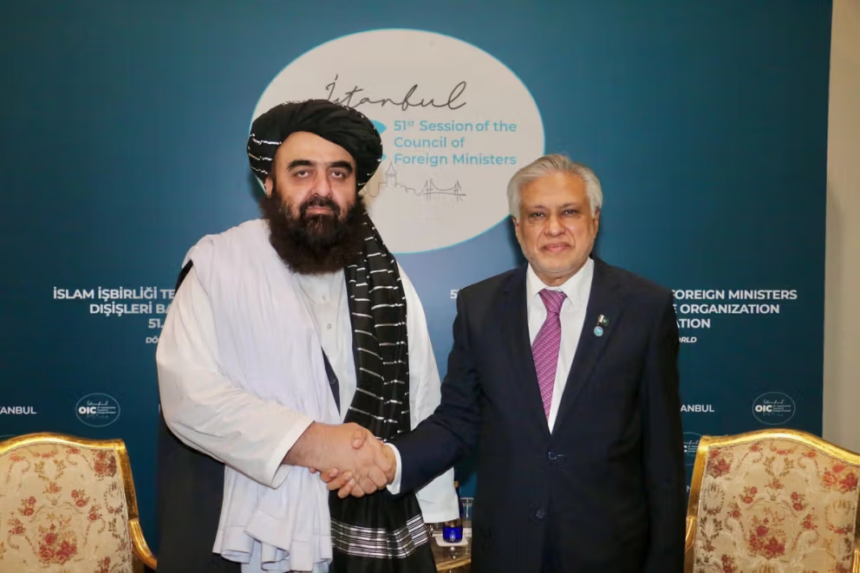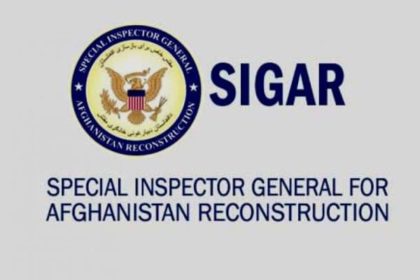RASC News Agency: On the sidelines of the 51st Session of the Organization of Islamic Cooperation (OIC) Council of Foreign Ministers in Istanbul, Amir Khan Muttaqi, the Taliban’s self-declared acting foreign minister, held a meeting with Pakistan’s Foreign Minister, Muhammad Ishaq Dar. While Taliban-affiliated sources hailed the meeting as a diplomatic milestone, seasoned observers and regional diplomats viewed the engagement as yet another hollow attempt by an unrecognized regime to project legitimacy amid deepening international isolation. According to a statement issued by the Taliban’s foreign ministry, the discussions centered on bilateral diplomacy, cross-border trade, regional transit, and infrastructural cooperation. Muttaqi reportedly expressed hope for the expansion of formal diplomatic ties and “practical cooperation.” However, these appeals were widely seen as aspirational rhetoric rather than grounded geopolitical possibilities. Pakistan, walking a fine line between regional pragmatism and strategic caution, acknowledged Afghanistan’s geographical significance but stopped short of offering any political recognition to the Taliban regime.
One of the key discussion points was the China–Pakistan Economic Corridor (CPEC) and the speculative expansion of the project into Afghanistan. While Ishaq Dar framed this as a “positive step toward enhancing regional connectivity,” experts warn that Taliban involvement given their fractured internal command, security failures, and ongoing human rights abuses poses severe risks for any meaningful regional cooperation. Without international recognition and the capacity to uphold economic or security commitments, Taliban promises hold little weight. Sources within Pakistan’s diplomatic circles suggest that relations with the Taliban have modestly improved since the last trilateral summit in Beijing, mediated by China. Pakistan has indicated plans to upgrade its diplomatic representation in Kabul from charge d’affaires to full ambassador an administrative move that the Taliban eagerly interpreted as symbolic endorsement. Yet this step is largely seen as a gesture of logistical necessity rather than political validation.
Nonetheless, relations between Islamabad and Kabul remain fraught with tension. Over the past two years, cross-border violence has flared in several regions including Torkham, Dand-e-Patan, and Spin Boldak while Pakistani airstrikes inside Afghanistani territory have triggered public and political backlash. Both sides continue to trade accusations of sponsoring militant groups: Islamabad accuses the Taliban of sheltering the Tehrik-i-Taliban Pakistan (TTP), while Taliban officials, in turn, allege Pakistani support for the Islamic State’s Khorasan branch (ISIS-K), a narrative few take seriously given the Taliban’s own documented links to regional extremism. Following Ishaq Dar’s last visit to Kabul, Pakistani media reported that the Taliban had verbally committed to curbing cross-border TTP attacks. Pakistani intelligence agencies estimate that over 6,000 TTP fighters, including top commanders, operate freely within Taliban-controlled Afghanistan an assertion the Taliban neither deny nor address directly, further eroding their credibility as a counterterrorism partner.
This meeting comes ahead of a planned trilateral summit between China, Pakistan, and Taliban representatives in Kabul. The agenda reportedly includes regional security cooperation, counter-extremism strategies, and economic integration. However, given the Taliban’s draconian policies including their war on women’s rights, repression of media, and ethnic discrimination the prospect of effective regional collaboration remains dubious. Despite their attempts at diplomatic engagement, the Taliban continue to rule through coercion rather than consensus. Their governance model is defined not by service delivery or institutional reform, but by ideological rigidity and brutality. Without a serious pivot toward inclusivity, transparency, and respect for international norms, the Taliban’s diplomatic overtures are doomed to be met with suspicion and strategic hedging not recognition.
As regional powers engage out of necessity, rather than trust, the Taliban’s continued participation in summits like the OIC or trilateral forums only underscores the international community’s enduring challenge: how to manage the reality of Taliban control without legitimizing a regime that remains fundamentally incompatible with the principles of diplomacy, development, and human rights.






